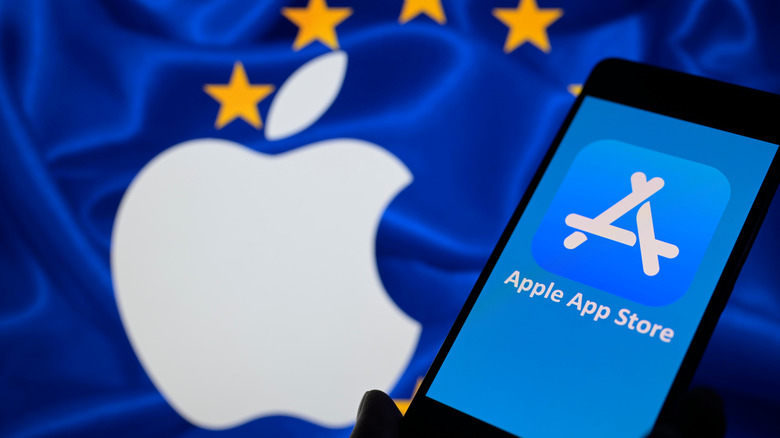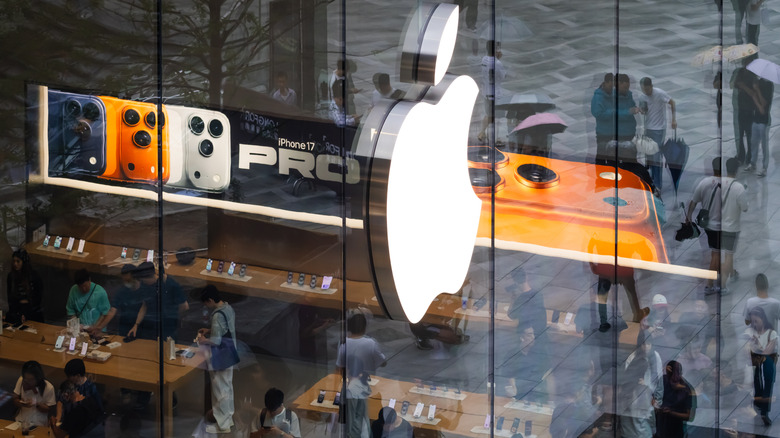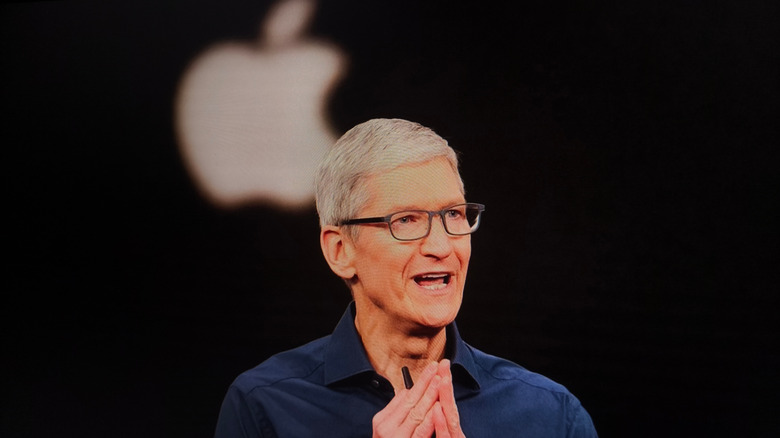Apple's Antitrust Clash With The EU May Be Coming To An End Soon
Apple's ongoing spat with the EU due to violations of the Digital Markets Act (DMA) may soon be coming to an end. According to a new report from the Financial Times, Apple may be close to reaching a settlement with EU regulators. If a settlement is ultimately reached, it would mark the end to a contentious battle that dragged on for years and saw large portions of Apple's business model threatened and put under the microscope. Additionally, the legal battles have also had a financial impact on Apple. This past April, for instance, the EU fined Apple $580 million because it found the App Store to be in violation of anti-steering rules. Specifically, the EU found that Apple didn't make third-party payment options on the App Store sufficiently accessible to users.
It's worth noting that word of a potential settlement comes in the wake of President Trump threatening the EU with various tariff-related punishments over its antitrust investigations into large U.S. tech companies. Last month, for example, Trump said higher tariffs across Europe would be considered after the EU slapped Google with a $3.45 billion fine for anti-competitive behavior in the ad market.
In a post on social media, Trump said that the EU's actions were preventing American companies from investing in jobs. "As I have said before, my Administration will not allow these discriminatory actions to stand," Trump said. "Apple, as an example, was forced to pay $17 billion dollars in a fine that, in my opinion, should not have been charged [...] We cannot let this happen to brilliant and unprecedented American ingenuity and, if it does, I will be forced to start a Section 301 proceeding to nullify the unfair penalties being charged to these taxpaying American companies."
Why the EU has taken aim at Apple
The DMA encompasses a sweeping set of regulations that, broadly speaking, aim to rein in the power of big tech companies. With a focus on increasing consumer choice, the DMA dictates that large tech companies like Apple need to allow third-party payment systems and let users sideload apps from third-party app stores. There was even a time when the DMA sought to force companies like Apple to develop interoperability frameworks for messaging apps. This would have forced Apple, for example, to develop a version of iMessage capable of communicating with WhatsApp. That particular demand, however, was ultimately walked back.
Still, the DMA did force Apple's hand in other significant ways. With the DMA deadline looming, Apple last year released iOS 17.4, an update which finally gave users the ability to download apps outside of the App Store. Predictably, this functionality is possible only within the EU, as users in the United States still need to download apps via Apple's App Store. As a quick point of interest, Apple ensures that U.S. iPhone owners can't sideload apps — even when visiting Europe — by checking a user's Apple ID billing address, current location, and default regional settings. Notably, Apple said that third-party app stores make it more challenging for the company to sniff out apps "that contain scams, fraud, and abuse, or that expose users to illicit, objectionable, or harmful content."
It's also worth noting that the iOS 17.4 update allowed users to make online payments outside of Apple Pay. Again, the EU framed the DMA as providing consumers with more choice. Apple, though it was forced to comply, made a point of noting that the rules hamper its ability to keep users as safe as possible.
Apple has vehemently fought against the DMA every step of the way
It's no secret that Apple isn't keen on third parties dictating how it should run its business. And especially given that Apple holds up user privacy and safety as a core tenet of the user experience, it's no surprise that Apple has fought against the EU's implementation of the DMA every step of the way. Just last month, Apple said that the EU's requirements are "making iOS look more like Android," a development that, funny enough, it claims "reduces choice" for consumers.
In previous statements, Apple bemoaned the fact that the EU is forcing Apple to run its business in a particular way. This demand, Apple articulated, forces "business terms which are confusing for developers and bad for users." Apple also said that the DMA's regulations make it tough for Apple to maintain the type of user experience the company prides itself on.


